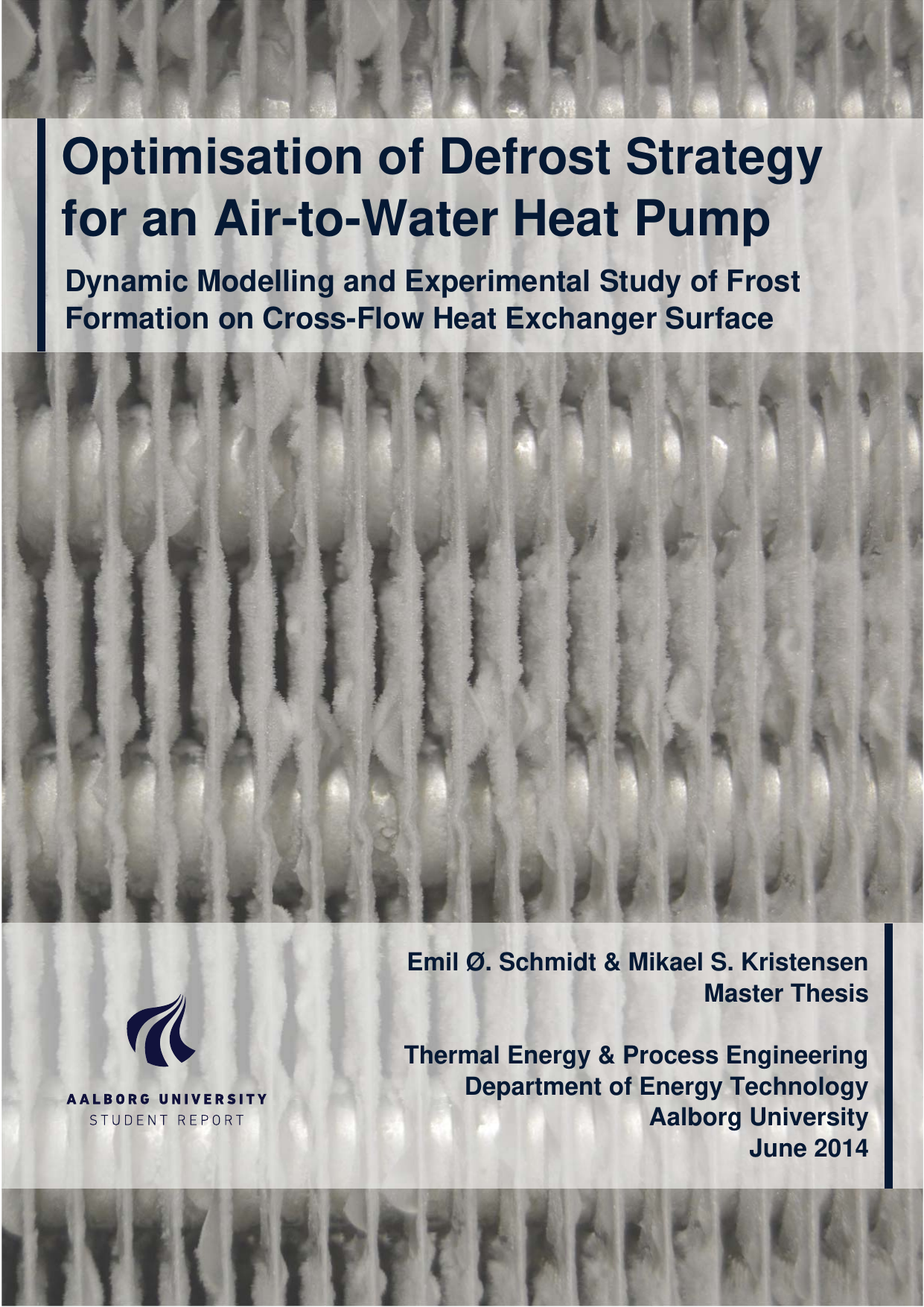
Optimisation of Defrost Strategy for an Air-to-Water Heat Pump : Dynamic Modelling and Experimental Study of Frost Formation on Cross-Flow Heat Exchanger Surface
Translated title
Optimering af afrimningsstrategi for luft-til-vand varmepumpe: Dynamisk modellering og experimentielt studie af rimudvikling på cross-flow varmeveksleroverflade
Term
4. term
Education
Publication year
2003
Submitted on
2014-06-02
Pages
140
Abstract
Formation of frost on heat exchanger surfaces is a well known issue in air source heat pump systems at low ambient temperatures. The purpose of this project is to improve the defrosting strategy of a DVI LV9 Combi heat pump, which currently operates with a fixed defrost interval of 60 minutes. A model is developed to determine the reduction in heat pump performance as frost develops on the evaporator surface and to calculate the optimal defrost initiation point. The model is validated against experimental measurements acquired at relative humidities in the range of 65% to 85% and air temperature of -4◦C to 4◦C. Two 5-hour experiments are conducted at identical conditions in order to compare the current defrost strategy to the one determined by the model. The model suggests a defrost interval of 35 minutes at the given conditions, which is found to be consistent with the point where the heat pump would otherwise have a significant decrease in performance. The new strategy results in a more stable performance, but does not improve the coefficient of performance significantly. A more stable performance would probably allow DVI Energi to reduce the superheat reference point and increase the performance of the heat pump.
Documents
